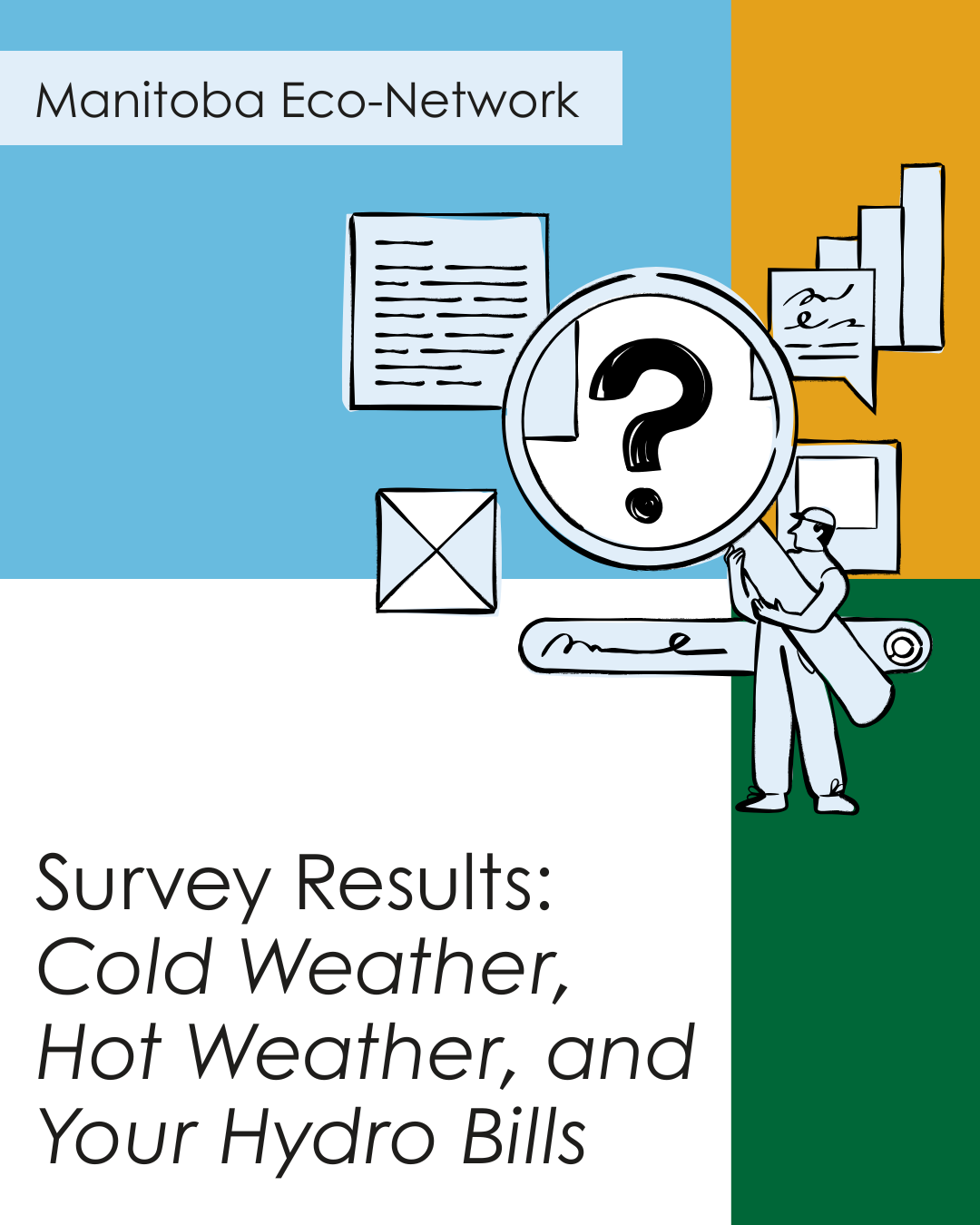Overview
What is the “Climate Safe Green City” project?
The focus of the project is to build on our partners existing environmental capacity, allowing them to increase the climate resiliency of their affiliated neighborhoods with a focus on reducing GHG emissions and creating localized climate adaptive solutions.
What was the goal of this survey?
MbEN designed a voluntary response survey intended to generate a sample from Winnipeg’s West End. Response rates resulted in a sample of 142 West End residents between February 15 and June 30, 2025.
The sample area included the neighborhoods of Spence, Daniel McIntyre, St. Matthews, and West Broadway, where MbEN identified had 305 residential postal codes as possible survey ‘participants’ within the target area.
The survey was hosted online via the SurveyMonkey platform, and advertised via flyers by Climate Safe, Green City community org partners at SNA, WBCO, and WERC. MbEN used SurveyMonkey to conduct all statistical analysis.
The Manitoba Eco-Network would like to thank Alexandra Caporale for the development, design, and promotion of the ‘Cold Weather, Hot Weather, and Your Hydro Bills: Energy Poverty Survey’, and for all of her work as the Eco-Network’s Resource Manager (2021-2025).
Why it Matters
Manitobans deserve access to living conditions suitable for all types of weather - and as climate change exacerbates the extremes of Manitoba’s temperatures, we recognize that more residents will experience energy poverty, and have their health (and comfort) negatively impacted.
Our research into this topic found that options for cooling centers within the neighbourhood boundaries of Daniel McIntyre, St. Matthews, Spence and West Broadway are slim to none. There are no movie theatres, indoor shopping centers or malls, or public libraries. Residents have to rely on outdoor green spaces and trust that local recreational facilities are funded, staffed, and are open for long hours.
For our recommendations to address these issues, read into our full report.
What is Energy Poverty?
Efficiency Canada defines energy poverty as referring to a situation ”where a household is unable to access adequate energy to maintain wellbeing at home” and where a household spends 30% of its housing cost on energy alone. GIS maps published by Efficiency Canada show that over 116,520 households in Manitoba (22%) are at risk of experiencing some level of energy poverty as of April 28, 2025.
Key Findings
- 85% of survey respondents noted very cold or very hot weather negatively impacted their lives inside the home. 122 respondents noted major impacts to their physical, emotional, or mental state as a result of extreme indoor temperatures. This included their home feeling uncomfortable (51.64%), trouble sleeping (33.61%), or those with a chronic disability or illness reporting worsened symptoms brought on by very cold or very hot dwellings (18.85%).
- Both Renters and Homeowners dealt with the impacts of energy poverty. 26% of survey respondents answered “YES” to having to make the choice between paying their hydro bills and other costs of living in the last 5 years. “YES” answers included renters (51.85%) and Homeowners (38.33%) alike.
- Splash pads and pools were the most popular place for staying cool in the summer. Survey respondents were asked “If you go somewhere other than your home to stay cool in the summer, where do you go?” Multiple choice answer options were designed to provide an understanding of which public locations were being utilized by West End residents during periods of extreme heat. Answers provided by 102 of the total participants showed Pools and Splash Pads as the most popular choice (51.96%). Other options included; public businesses such as malls or theatres (50.98%), parks or green spaces (47.06%), public facilities such as community centers or libraries (31.37%), etc.
Full Report
To read the full version of our report, you can access it here.
For our project slides in the presentation of our findings, read them here.
Acknowledgements
The Manitoba Eco-Network would like to thank the following community organizations; the Spence Neighborhood Association (SNA), the West Broadway Community Organization (WBCO) and the West End Resource Center (WERC) for their continued partnership on the Climate Safe, Green City project. Special thanks to Stephen Kirk (SNA), Kelly Frazer (WBCO), and Alex Legare (WERC) for their hard work and dedication to their communities.
We thank Pro Bono Students Canada, with special thanks to Esther Adegbesan and Luke Pankratz for their research contributions to this project.
We thank Mike Bagamery for his research contributions to this project.
We thank Karen Windatt and Vanessa Russell from Efficiency Manitoba, Mary Agnes Welch from Probe Research, and Dr. Patricia Fitzpatrick from the University of Winnipeg Geography Department all of whom provided helpful guidance and notes during the development of the survey.
The Manitoba Eco-Network also thanks our funders. Funding for the Climate Safe, Green City project has been provided by the Manitoba Government, the Winnipeg Foundation, Assiniboine Credit Union, the University of Winnipeg Department of Urban and Inner City Studies and Manitoba Eco-Network donors.


